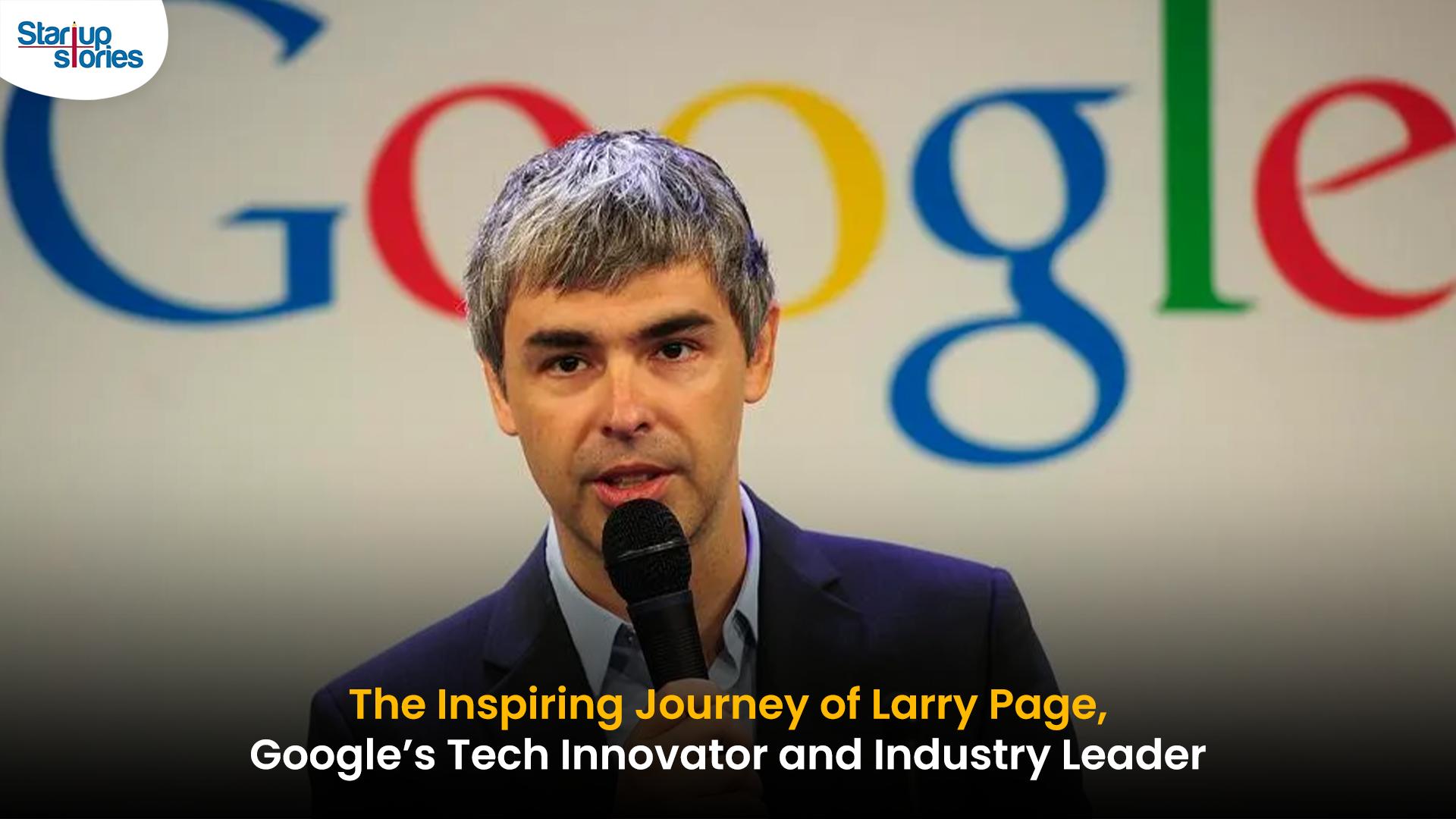Entrepreneur Stories
Dell And Its Founding Story

Michael Dell, the founder of Dell Inc, had a very inspiring story like all creators! With an avid interest in technology and brands, Dell started tinkering with machines at a very young age. Despite not having a complete and thorough understanding on how they work, Dell still wanted to work with innovative things. Growing up, there were two primary events that made a huge impact on his life.
The first one came from his parents, who taught him that working hard in life did not mean you had to always struggle. It meant you had to keep going through all the obstacles, no matter what. The second was his love for crunching numbers. This came from when Dell was a child and would love looking at the stock market and how the trends change over the years. He loved it so much, he sat for the high school equivalency exam at the age of 8 (so he would help advance his career and get to his goal of becoming a businessman as soon as possible.)
The beginning of Dell

Working his way through college, Michael Dell scrubbed and cleaned through his early life to create a savings’ nest for himself. Growing up through the PC and Apple boom, Dell bought his first computer at the age of 15, purely to understand how these systems functioned. By the time Dell reached college, he knew he had found his dream: to create computers which were not only sleek design wise, but extraordinary in terms of functionality.
Dell’s college life was made all the more extraordinary because of the PC boom happening at that point. He realised, at that point, no company was directly selling computers to the audience. His first enterprise came to be when he started repairing and making personal computers for the other students in his college. One of the reasons this became such a lucrative idea for him was he would bypass the middleman entirely and create a direct communication path between him and the people interested in buying systems.
What made Dell extremely popular among his fellow college mates was that his focus was not on just selling the systems. He wanted to create the perfect customer support and provide the systems he made, for a reasonable price. Very soon, he had customers not only in college, but also outside college! It was not long before Dell realised he had gotten all he could from University and it was now time to branch out into a new world.
The establishment of Dell as a success

Just as the establishments grew, so did the revenue Dell generated through Dell Inc. When he initially started playing around with the stock market, Dell had the belief that selling personal computer systems to customers was the best way to effectively deal with computing solutions! In the early stages, computers were primarily sold through word of mouth, advertisements and mail orders.
Through the avoidance of the middleman and the reduction of cost through advertisements, Dell saved a lot of money and converted the unused resources into much deserved profits. By 1984, the first year post its formal inception, Dell as a company earned a total revenue of $ 6 million in sales and by the year 2000, Dell was a billionaire! With more than 34 offices in countries all over the world and an employee count of 35,000, Dell’s success story is one that needs to be told not once, but over and again!
Entrepreneur Stories
Indian Man Quits JPMorgan, Takes 70% Pay Cut to Launch $6 Million Startup

Leaving behind a high-paying job at JPMorgan, an Indian entrepreneur embraced a 70% salary cut to pursue true purpose and passion in the startup world. Disenchanted with what he described as a “robotic” corporate routine, he sought meaningful work that made a real impact. This pivotal decision marked the beginning of his new journey, one focused on value creation rather than titles and corporate perks.
Powered by resilience and fresh perspective, the entrepreneur launched his own startup, prioritizing innovation and hands-on solutions. The road was challenging, but his vision resonated with the market: the startup quickly gained traction and raised $6 million—an impressive acknowledgement of its potential in a competitive landscape. Every hard lesson from early setbacks and bootstrapping paid off in real customer growth and investor confidence.
Today, his journey stands as an inspiring example for professionals seeking authentic success outside the corporate grind. By trading comfort for creative freedom, he grew a venture that solves important problems, generates jobs, and builds wealth beyond just salary. For ambitious founders, his story highlights the power of risk-taking, adaptability, and relentless focus on impact in India’s thriving startup ecosystem.
Videos
Larry Page: The Visionary Co-Founder Behind Google’s Global Success

Larry Page is a visionary technology entrepreneur and co-founder of Google, one of the world’s most influential companies. Born in 1973 in Michigan, Page grew up surrounded by computer technology, which inspired his passion for innovation from an early age. He studied computer engineering at the University of Michigan and later pursued his PhD at Stanford University, where he developed the revolutionary PageRank algorithm with Sergey Brin. This technology fundamentally changed the way search engines rank websites, making Google the most accurate and popular search engine globally.
The journey of Larry Page and Google began in 1998 when they officially launched the search engine from a small garage. Leveraging their unique algorithm, Google quickly surpassed competitors due to its ability to deliver highly relevant search results, transforming internet search forever. Under Larry Page’s leadership as CEO, Google expanded beyond search to launch groundbreaking products including YouTube, Gmail, and Google Maps, turning it into a global tech powerhouse that shapes how we access and interact with information online.
Larry Page later became the CEO of Google’s parent company, Alphabet Inc., driving innovation and investment in next-generation technologies such as artificial intelligence, autonomous vehicles, and healthcare solutions. His visionary leadership and commitment to technological advancement have cemented his legacy as one of the most influential figures in the tech industry. Today, Larry Page remains a key influencer in shaping the future of technology and digital innovation worldwide.
Entrepreneur Stories
India’s Tech Story: Airtel Spreads AI Access, Ohm Mobility Lessons

Bharti Airtel has launched the innovative “Airtel-Perplexity Blueprint,” partnering with Perplexity to provide over 360 million customers free access to Perplexity Pro for a year—a benefit valued at ₹17,000 ($200). This collaboration enables Airtel users across mobile, broadband, and digital TV to harness advanced capabilities in generative AI, including leading AI models like GPT 4.1, Claude, and Gemini, along with up to 300 Pro searches daily, image generation, document analysis, and personalized planning services. The move is seen as a milestone for telecom innovation and the democratization of AI in India, making powerful research and productivity tools accessible to a massive user base.
This strategic partnership positions Airtel as an “AI-first” telecom provider, allowing it to gain key insights into user interactions with artificial intelligence and adapt its networks for growing digital demands. For Perplexity, the tie-up grants exclusive access to India’s vast telecom audience, rapidly propelling the app to the No. 1 spot on the Indian App Store, surpassing global competitors like ChatGPT and Google Gemini. Airtel customers can activate their complimentary subscription seamlessly through the Airtel Thanks App, under the Rewards and OTTs section, reinforcing Airtel’s commitment to digital customer empowerment.
The broader Indian startup ecosystem reflects both breakthrough innovation and hard-earned lessons, illustrated by the recent shutdown of Ohm Mobility, an EV financing startup. Despite multiple pivots and industry-leading investors, Ohm Mobility struggled to achieve a sustainable business model—a reminder of the challenges in market fit and adaptability. As AI adoption accelerates and startup realities evolve, industry leaders like Airtel and Perplexity are setting new standards, while others, like Ohm Mobility, offer valuable insights on resilience and the importance of business model flexibility in India’s dynamic tech landscape.














Nycjvzgk
May 25, 2025 at 12:37 pm
Explore the ranked best online casinos of 2025. Compare bonuses, game selections, and trustworthiness of top platforms for secure and rewarding gameplaycrypto casino.
J88
November 6, 2025 at 3:43 pm
Đến với J88, bạn sẽ được trải nghiệm dịch vụ cá cược chuyên nghiệp cùng hàng ngàn sự kiện khuyến mãi độc quyền.
iwin
November 7, 2025 at 3:24 pm
iwin – nền tảng game bài đổi thưởng uy tín, nơi bạn có thể thử vận may và tận hưởng nhiều tựa game hấp
站群程序
November 10, 2025 at 4:15 pm
搭载智能站群程序,自动化搭建与管理,为SEO项目提供核心驱动力。站群程序
MM88
November 14, 2025 at 7:09 pm
Với giao diện mượt mà và ưu đãi hấp dẫn, MM88 là lựa chọn lý tưởng cho các tín đồ giải trí trực tuyến.
MM88
November 23, 2025 at 10:22 am
Khám phá thế giới giải trí trực tuyến đỉnh cao tại MM88, nơi mang đến những trải nghiệm cá cược thể thao và casino sống động.